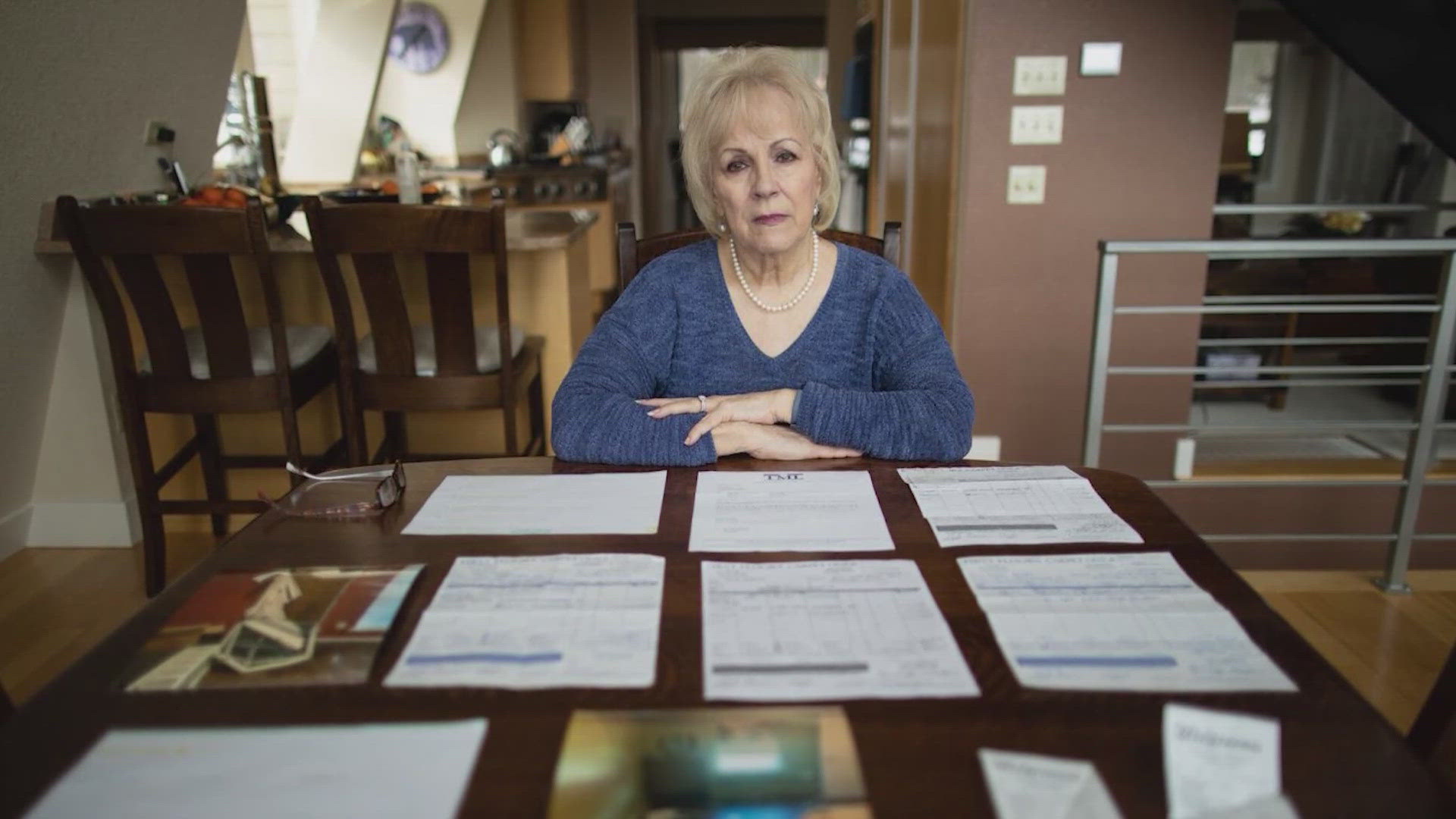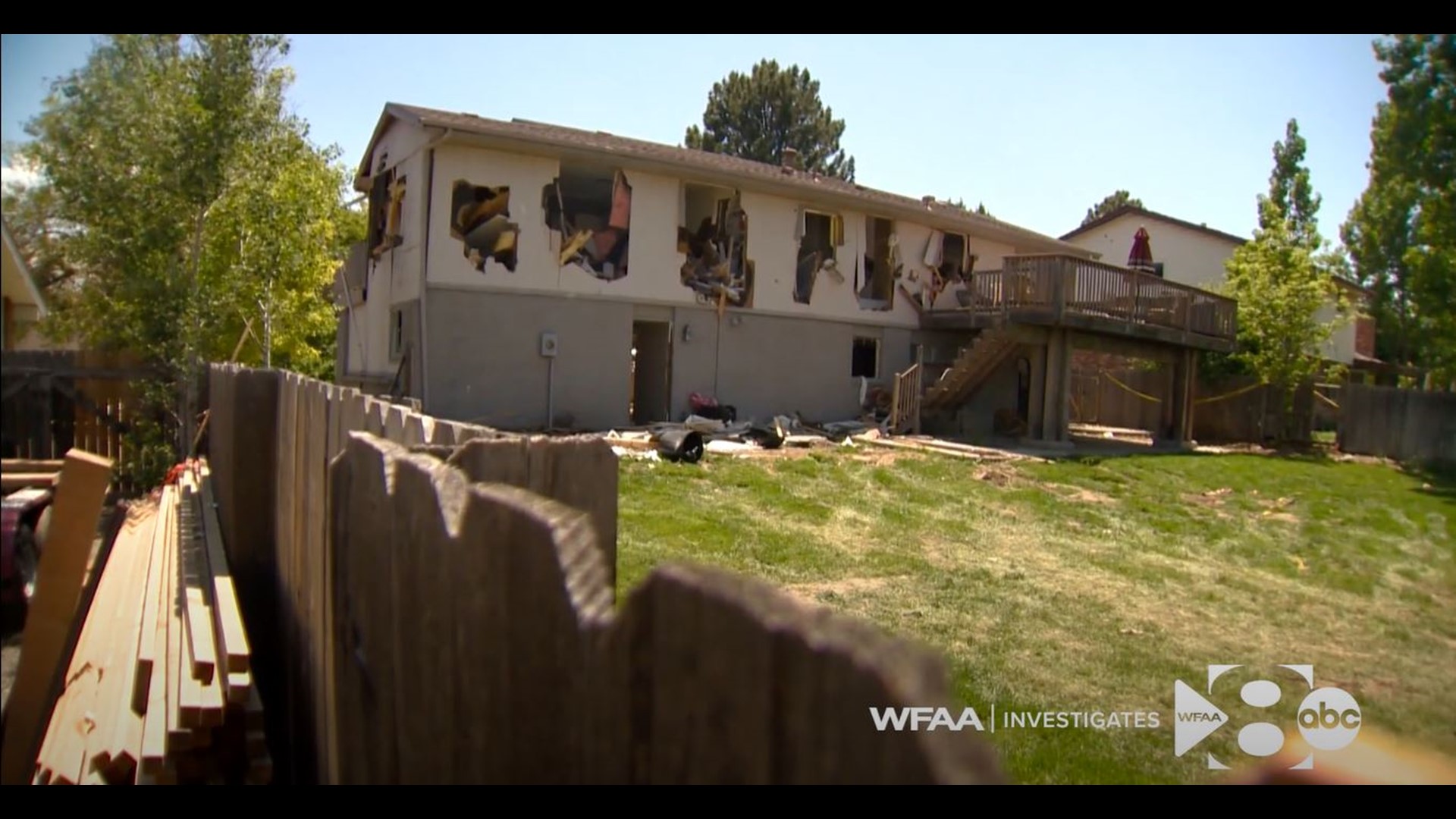MCKINNEY, Texas — A former McKinney resident whose home was ruined during a SWAT operation in July of 2020 plans to petition the U.S. Supreme Court on June 28 to make her whole after police did roughly $60,000 in damage to the property.
A wanted suspect who forced his way into Baker's home when she wasn't there to hide from police is what brought SWAT officers to her former property off of Vista Verde Trail in the first place. They did what most SWAT teams do when dealing with a barricaded individual -- they shot tear gas canisters inside the home, broke windows, doors, and a fence trying to get the man to come out before he ultimately killed himself inside.
Vicki Baker initially won a landmark federal court case by trial in 2022. A jury ruled she was entitled to nearly $60,000 to be paid by the City of McKinney.
But after the city appealed, a panel of the 5th Circuit reversed the lower court's decision in October of 2023. Earlier this year, Baker asked the entire court of 17 judges to rehear the case in February, but only six voted yes.
If Baker's early court win had been upheld, it may have changed how the courts perceive sovereign, qualified, or governmental immunity claims in Texas. Many municipalities or agencies in the state use governmental immunity to avoid repaying taxpayers for damaging their property.
Baker's only hope now is to petition the U.S. Supreme Court for relief. It's a long shot; the high court receives thousands of petitions yearly but only chooses to hear or rule on 100-150.
But Baker told WFAA on Wednesday that she remains optimistic. The 79-year-old who beat cancer before this entire ordeal now lives in Montana after selling her property in McKinney.
"This is very disconcerting and difficult to deal with," Baker said. "But I've always believed that God will take any bad situation and make it good somehow."

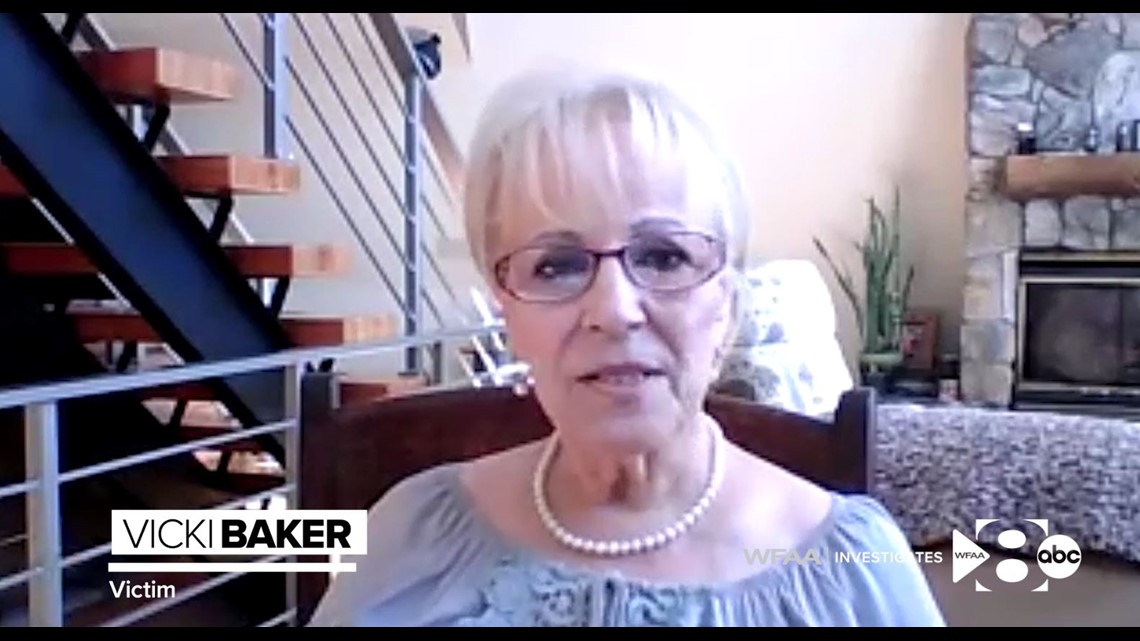
Jeffrey Redfern, Baker's attorney from the Institute of Justice, told WFAA that he thinks the issue is bound to end up before the U.S. Supreme Court sooner or later and that Baker's case is about as sterling an opportunity as it gets.
WFAA has covered several legal attempts by property owners in Texas and abroad to seek compensation after police destroyed or damaged their stuff in the name of the law.
Since nearly every insurance policy doesn't protect customers from an 'act of government,' most went after the entities responsible for causing the damage and lost challenging governmental immunity claims.
Federal and state agencies have made governmental immunity claims to shield law enforcement and other agencies from substantial financial losses and to ensure they are not hamstrung when protecting the public.
So, if law enforcement or other governmental entities damage your property, their liability is limited.
However, Redfern didn't challenge immunity; he argued that Baker was owed compensation for the damage under the 5th Amendment in the U.S. Constitution. He likened it to eminent domain after Baker won her case.
"Just like if the government took your property to build a road or a school--they're allowed to do that, but they have to provide you with just compensation," Redfern said.
The 5th Circuit panel, however, didn't see it that way, citing that an exception can be made in an emergency.
"They disagreed with the city's arguments but provided reasoning that we think is wrong. People talked about their horses and supplies being seized to fight the British when the 5th Amendment was adopted. Everyone understood this was supposed to apply even during emergencies, and we think the U.S. Supreme Court will agree."
Two judges strongly dissented from the opinion not to rehear Baker's case, writing, "...we're unsure if such a privilege exists," when referring to the 'emergency' exception.

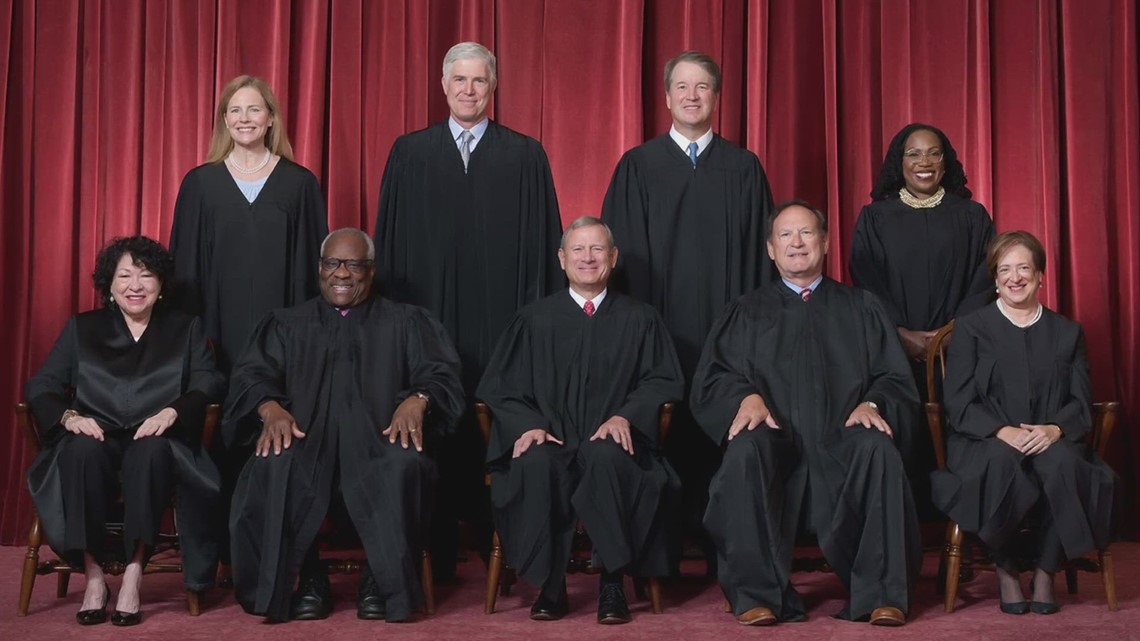
Once Baker files her petition on June 28, the City of McKinney will likely file a response citing why SCOTUS shouldn't take the case. The case will eventually reach the high court for a conference in the fall, where they'll decide whether or not to hear it.
It takes the approval of just four justices to decide to hear a case -- they can also sit on a petition for months sometimes before deciding.
"I think this checks many of the right boxes," Redfern said. "It's an issue that lower courts have disagreed about a lot. Aside from critical national issues, this is sort of the next tier involving an important constitutional issue."
The City of McKinney told WFAA that it was pleased with the 5th Circuit's ruling and would defend it to the Supreme Court.
Baker is about to turn 80 and told WFAA that this is the last thing she should deal with.
But it's now more about the money -- it's about the principle. Baker said if you break something, you fix it and there should be no exceptions whether you're an ordinary person or someone with a badge.
"This can happen to anybody--and that's when the light flipped on for me," Baker said.
"I don't have the savings I used to have after fixing up the house on my own. Others mustn't have to suffer what I've had to already. We need to settle this. I've always believed that what happened to me, no matter how bad will be good for someone else."
The SWAT Operation
The day Baker's home was destroyed, she was in her new Montana home while her daughter was still on the Vista Verde property. The house had been on the market, and a sale for the property was on the verge of being finalized.
Also, on that day, a contractor and handyman that Baker knew had fled inside her home to take refuge after kidnapping a 15-year-old girl.
Baker's daughter was startled but escaped the home while an armed Wesley Little remained inside with the teen.

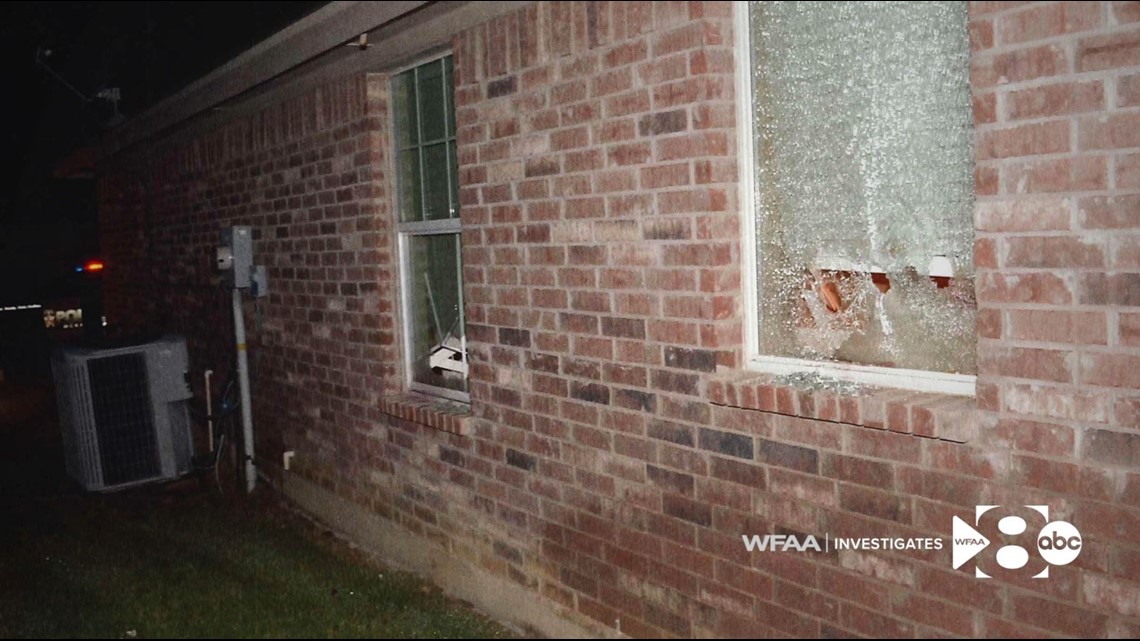
Once she left the house, she called 911. McKinney police quickly surrounded the home and negotiated with Little to let the teen go. He complied but wouldn't surrender. SWAT then proceeded to make their way inside.
"The damage to the home was extensive," Baker told WFAA. "They used around 30 tear gas canisters. They used a small bomb on my garage door and blew that off." A photo of the damage done to Baker's home. Tear gas canisters were shot through the windows.
The canisters were shot through the walls, roof, and windows. A SWAT vehicle also mowed over Baker's fence. When police made entry to the home, Little had already committed suicide. By the time McKinney Police left the area, Baker says more than $50,000 in damage had been done.
"I think it was close to $70,000," Baker said.

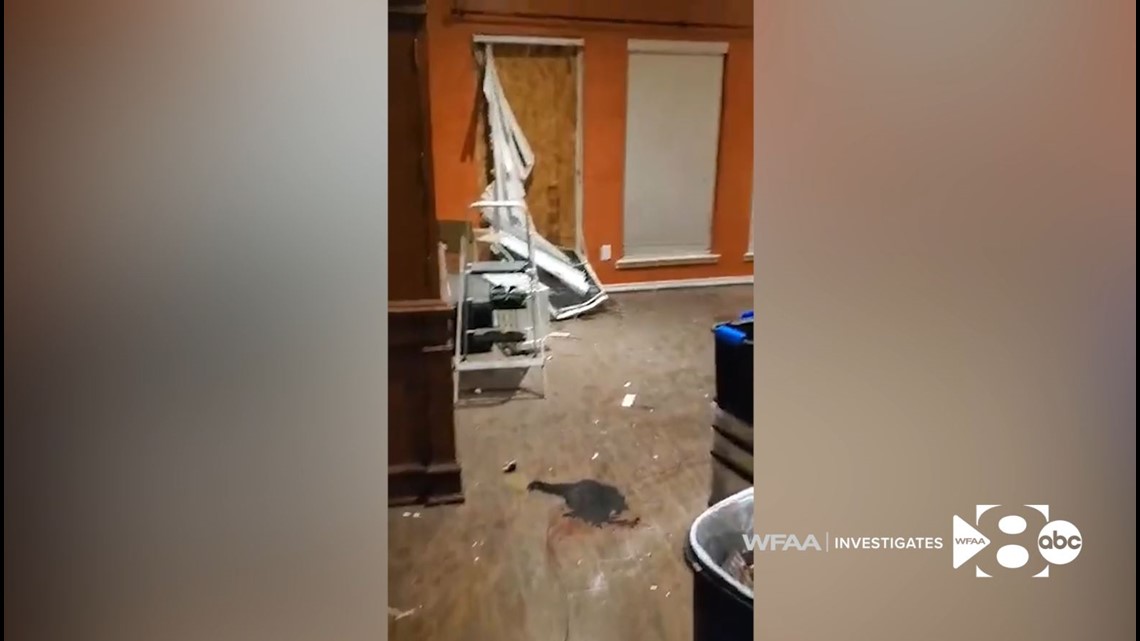
And Baker had to pay out of pocket to get everything fixed. A hazmat crew had to dispose of anything dangerous in the home, and Little's body had to be removed, too.
Baker told WFAA that nearly every window in the home had to be replaced, as well as the front and garage doors. Baker added that appliances, flooring, and fencing had to be repaired. The lingering smell and residue from tear gas were also an issue.
On top of that, Baker mentioned her daughter's dog was trapped inside the home during the raid and that it went blind and deaf due to the tear gas and explosions. As expected, the sale of the property went out the window.
Baker eventually sold the property after making repairs. Her insurance did cover some of the damage -- though only what was done by Little.

